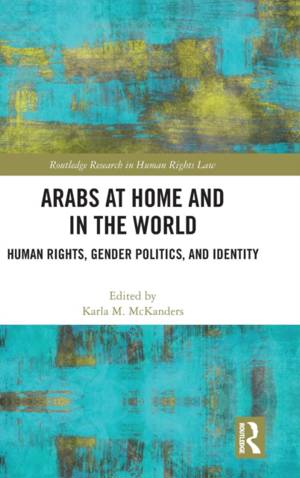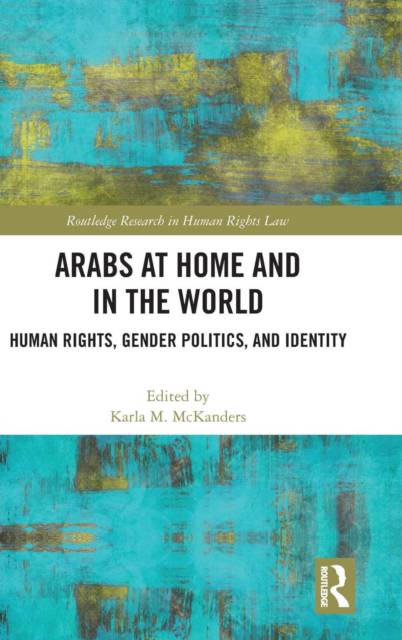
- Retrait gratuit dans votre magasin Club
- 7.000.000 titres dans notre catalogue
- Payer en toute sécurité
- Toujours un magasin près de chez vous
- Retrait gratuit dans votre magasin Club
- 7.000.000 titres dans notre catalogue
- Payer en toute sécurité
- Toujours un magasin près de chez vous
Arabs at Home and in the World
Human Rights, Gender Politics, and Identity
Description
This volume brings together an interdisciplinary group of scholars from the United States, the Middle East, and North Africa, to discuss and critically analyze the intersection of gender and human rights laws as applied to individuals of Arab descent. It seeks to raise consciousness at the intersection of gender, identity, and human rights as it relates to Arabs at home and throughout the diaspora. The context of revolution and the destabilizing impact of armed conflicts in the region are used to critique and examine the utility of human rights law to address contemporary human rights issues through extralegal strategies. To this end, the volume seeks to inform, educate, persuade, and facilitate newer or less-heard perspectives related to gender and masculinities theories. It provides readers with new ways of understanding gender and human rights and proposes forward-looking solutions to implementing human rights norms.
The goal of this book is to use the context of Arabs at home and throughout the diaspora to critique and examine the utility of human rights norms and laws to diminish human suffering with the goal of transforming the structural, social, and cultural conditions that impede access to human rights. This book will be of interest to a diverse audience of scholars, students, public policy researchers, lawyers and the educated public interested in the fields of human rights law, international studies, gender politics, migration and diaspora, and Middle East and North African politics.
Spécifications
Parties prenantes
- Editeur:
Contenu
- Nombre de pages :
- 210
- Langue:
- Anglais
- Collection :
Caractéristiques
- EAN:
- 9781138578852
- Date de parution :
- 23-01-19
- Format:
- Livre relié
- Format numérique:
- Genaaid
- Dimensions :
- 150 mm x 239 mm
- Poids :
- 430 g






